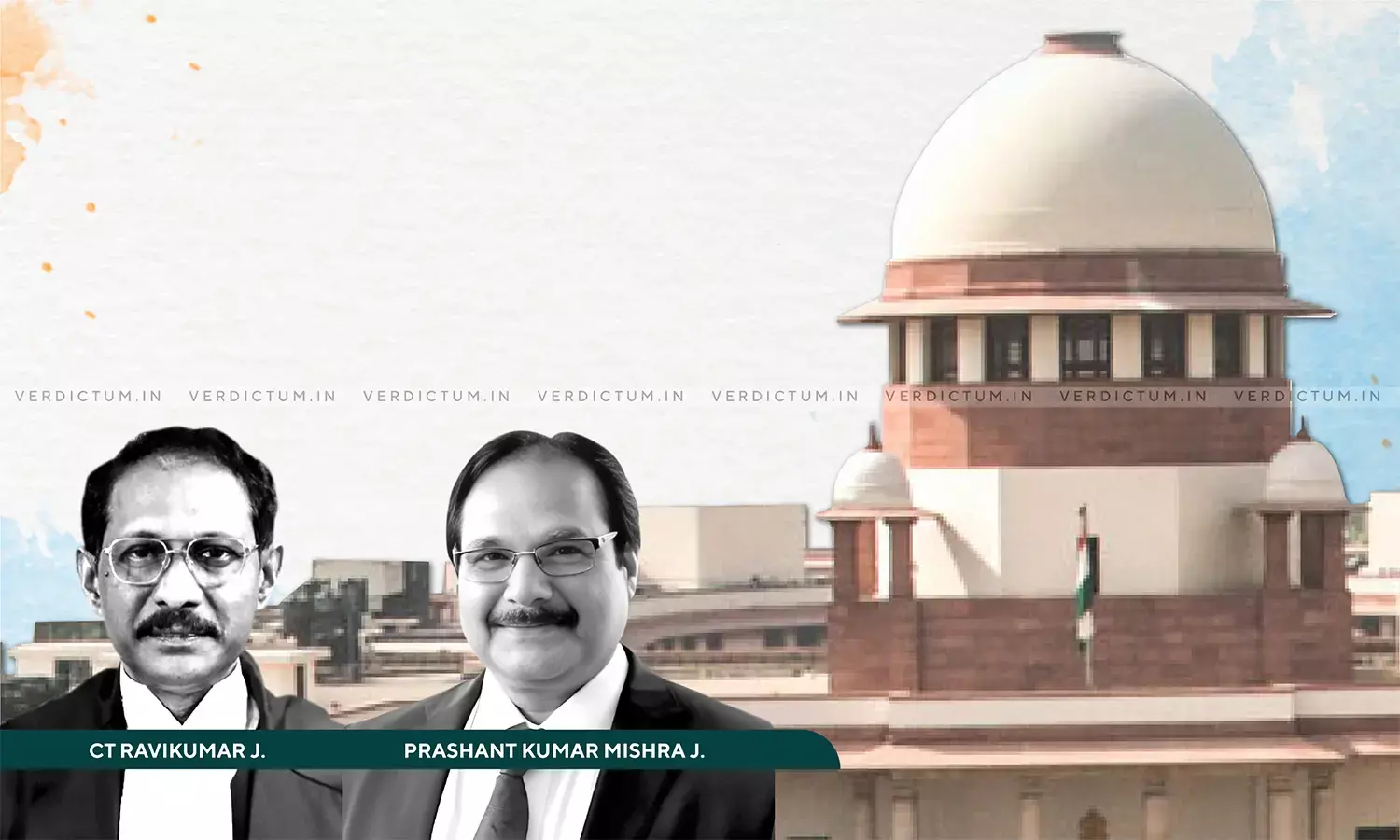Pre-Arrest Bail Condition Requiring Husband To Fulfil All Physical & Financial Requirements Of Wife Absolutely Improbable, Impracticable & Counterproductive: SC
The Supreme Court held that a pre-arrest bail condition requiring a person to fulfil all the physical as well as financial requirements of their spouse is absolutely improbable, impracticable & counterproductive.
The Court set aside the condition imposed by the Patna High Court while granting provisional pre-arrest bail to a husband which stated that “he undertakes to fulfill all physical as well as financial requirement of the complainant so that she can lead a dignified life without any interference of any of the family members of the petitioner.”
A Bench of Justice C.T. Ravikumar and Justice Prashant Kumar Mishra observed, “Viewed from any angle, putting conditions as has been done in this case, requiring a person to give an affidavit carrying a specific statement in the form of an undertaking that he would fulfil all physical as well as financial requirements of the other spouse so that she could lead a dignified life without interference of any of the family members of the appellant, can only be described as an absolutely improbable and impracticable condition…On the contrary, such conditions will only be counterproductive.”
AOR Chand Qureshi appeared for the appellant, while Addl. SC Anshul Narayan represented the respondents.
The Court was “pained” to see that despite a catena of decisions deprecating the practice of putting onerous conditions for pre-arrest bail, such orders were being passed without giving due regard to the binding precedents.
“The constant and consistent view of this Court on matters granting a prayer for bail under Section 438 of the Code of Criminal Procedure, 1973 (for short ‘the Cr.P.C.’) is that after forming an opinion, taking note of all relevant aspects, that bail is grantable, conditions shall not be put to make it impossible and impracticable for the grantee to comply with,” the Court remarked.
The Bench stated that the courts have to be very cautious in imposing conditions, especially in cases of matrimonial discordance. “This is to be done warily, especially when the couple concerned who are litigating in divorce proceedings, jointly though lukewarmly, agreed to attempt to reconcile and re-unite,” the Court added.
The Court noted that the impugned order of the High Court revealed that the parties who were about to “part company,” had expressed their readiness to “bury the hatchet” and to reunite where the husband had even agreed to withdraw the divorce case.
“There can be no doubt that a re-union after a marital discord is possible only if the parties are put to a conducive situation to regain the mutual respect, mutual love and affection. No doubt putting a condition that one of the parties should undertake to fulfil all physical as well as financial requirements of the other party could not bring about such a situation,” the Court observed.
Consequently, the Court held, “We stress upon the need to put compliable conditions while granting bail, recognizing the human right to live with dignity and with a view to secure the presence of the accused as also unhindered course of investigation, ultimately to ensure a fair trial. In respect of matters relating to matrimonial cases, conditions shall be put in such a way to make the grantee of the bail as also the griever to regain the lost love and affection and to come back to peaceful domesticity.”
Accordingly, the Supreme Court disposed of the appeal.
Cause Title: Sudeep Chatterjee v. The State of Bihar & Anr. (Neutral Citation: 2024 INSC 567)
Appearance:
Appellant: AOR Chand Qureshi; Advocates Nitish Banka, Lakshay Manchanda, Parveen Qureshi and Arpana Soni
Respondents: Addl. SC Anshul Narayan; AOR Prem Prakash and Divyanshu Kumar Srivastava




